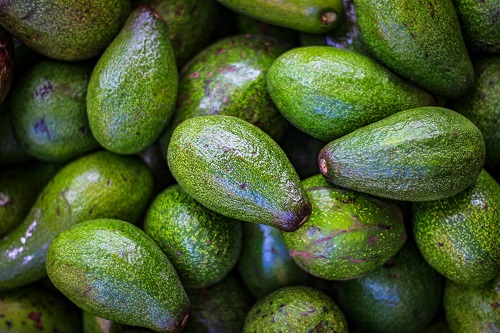Avocado Farming

Type: Farming
Key Products for Sale: Fresh avocados
Technology Considerations:
Utilization of modern irrigation systems, monitoring devices for soil moisture and nutrient levels, and potentially drone technology for farm surveillance.
Market for the Products:
Local consumers, restaurants, cafes, grocery stores, and potentially exporters interested in premium Hass avocados.
Key Inputs into the Business:
Avocado seeds, saplings, fertilizers, irrigation systems, labor, packaging materials, and transportation.
Product Preparation Process:
Cultivation, harvesting, sorting, packaging, and distribution.
Quality Considerations:
Ensuring optimal growing conditions, timely harvesting, careful sorting, and using eco-friendly packaging to maintain freshness.
Cost of Investment:
Land Acquisition or Lease:
Cost: Varies depending on location and size, but approximately KES 500,000 to KES 2,000,000 for a small to medium-sized farm.
Equipment Purchase:
Irrigation systems: KES 200,000 to KES 500,000.
Farming tools and machinery (e.g., pruning tools, sprayers, etc.): KES 50,000 to KES 200,000.
Packaging equipment: KES 100,000 to KES 300,000.
Total: Approximately KES 350,000 to KES 1,000,000.
Operational Costs:
Avocado seeds or saplings: KES 50 to KES 100 per seedling (depending on quantity, quality, and variety), with an initial investment of KES 100,000 to KES 500,000.
Fertilizers: KES 50,000 to KES 200,000 per year.
Labor: Depends on the size of the farm and local wages, estimated at KES 500,000 to KES 1,500,000 per year.
Packaging materials: KES 50,000 to KES 150,000.
Transportation: Varies based on distance to markets, estimated at KES 100,000 to KES 300,000 per year.
Total: Approximately KES 800,000 to KES 2,650,000 per year.
Marketing Expenses:
Website development and maintenance: KES 50,000 to KES 100,000 (one-time cost).
Advertising and promotion: KES 100,000 to KES 300,000 per year.
Total: Approximately KES 150,000 to KES 400,000 per year.
Overall, the total initial investment for starting an avocado farming business in Kenya could range from approximately KES 1,800,000 to KES 5,950,000, depending on various factors such as land size, equipment quality, and operational scale. These figures serve as estimates and actual costs may vary based on specific circumstances and market conditions.
Required Operational Infrastructure: Avocado orchards, irrigation systems, storage facilities, packaging equipment, transportation vehicles, and administrative offices.
Most Suitable or Viable Location of the Business:
Regions with a suitable climate for avocado cultivation, access to water resources, and proximity to target markets.
Potential Sources of Investment Capital:
Personal savings, bank loans, government grants, venture capital, or partnerships with investors interested in sustainable agriculture.
Requirements for Effective Management:
Knowledgeable farm managers, skilled laborers, financial management expertise, and marketing strategies to reach target customers.
Role of Mobile Phone and ICT in the Business:
Use of mobile apps for farm management, communication with suppliers and customers, online marketing, and tracking sales data.
Statutory Regulations and Licenses:
Compliance with agricultural regulations, land use permits, environmental regulations, food safety standards, and business licensing requirements.
Pricing:
Competitive pricing reflecting the quality of the product and production costs, while considering market demand and competition.
Profitability:
Potential profitability depends on factors such as yield per acre, market demand, operational efficiency, and cost management.
Next Steps to Take:
Secure land or leasing agreements, acquire necessary equipment and inputs, establish relationships with suppliers and buyers, implement effective marketing strategies, and monitor crop growth and market trends for ongoing adjustments.

